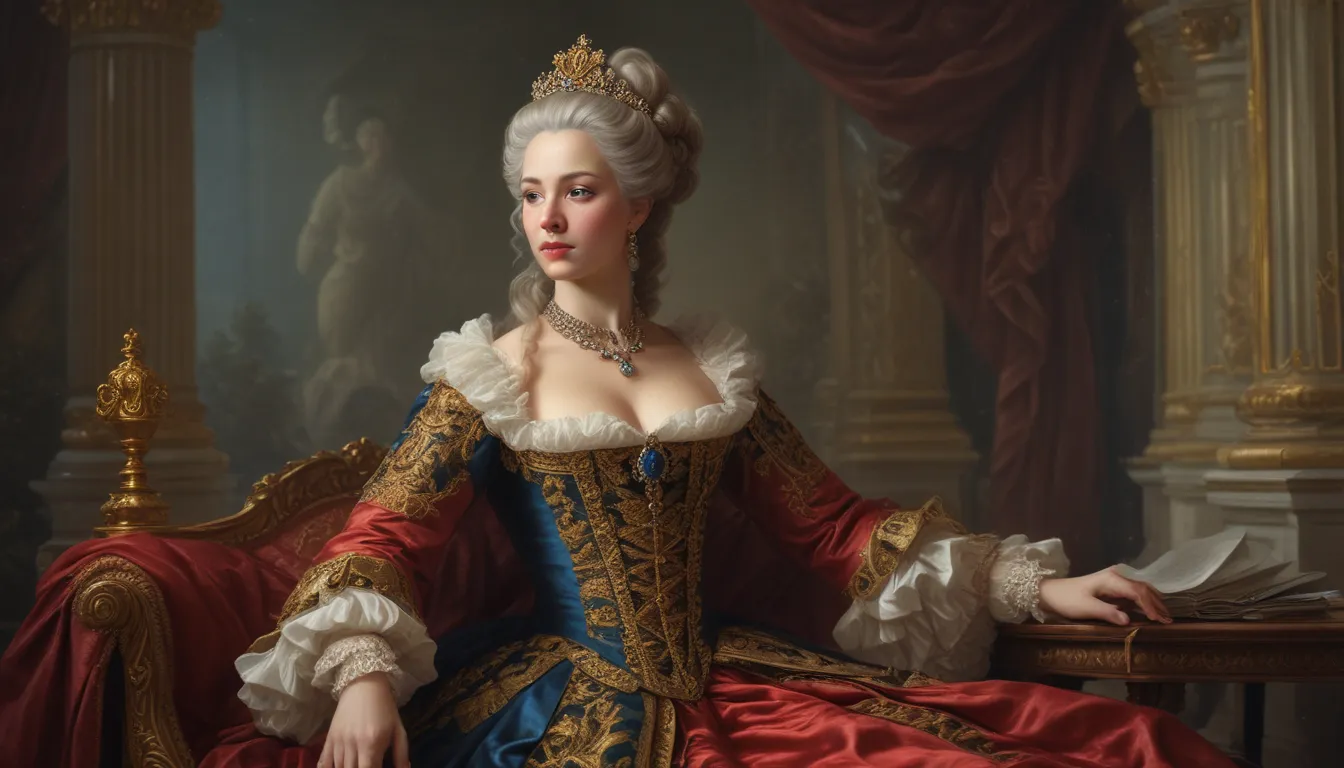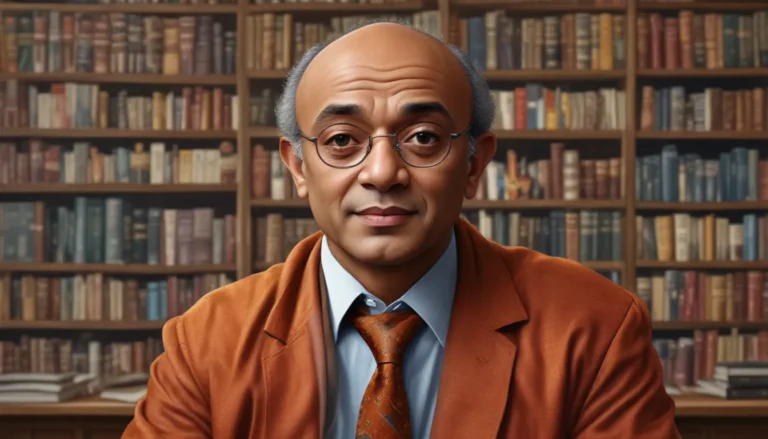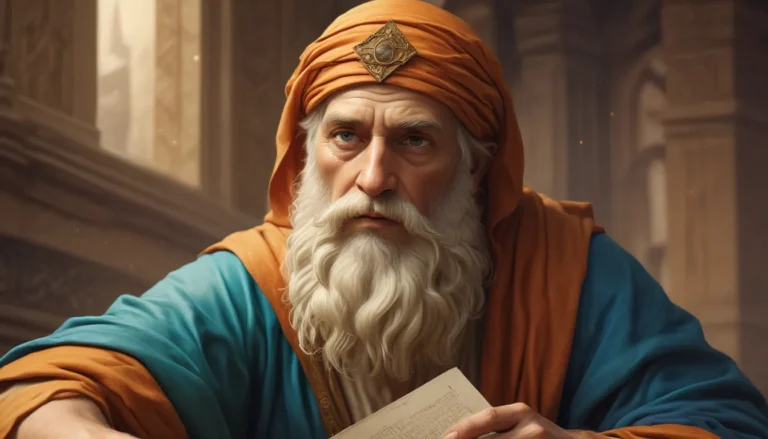The images in our articles may not match the content exactly. They are used to grab your attention, not to show the exact details in the text. The images complement the text but do not replace it.
Welcome to a captivating journey through the remarkable life and reign of Catherine the Great, Empress of Russia. Born in 1729, Catherine left an indelible mark on Russian history through her intelligence, ambition, and unwavering determination. As we delve into 20 astounding facts about Catherine the Great, we will uncover the multifaceted aspects of her life, from her rise to power to her enduring legacy of enlightenment and cultural flourishing.
Unveiling Catherine the Great: A Glimpse into Her Life and Reign
Catherine the Great, originally Sophie Friederike Auguste von Anhalt-Zerbst-Dornburg, was born on May 2, 1729, in Stettin, Prussia (now Szczecin, Poland). Her reign as Empress of Russia spanned from 1762 until her death in 1796, marking one of the most influential periods in Russian history. Known for her strong leadership and love for the arts, Catherine’s reign ushered in a period of intellectual and cultural growth, shaping the identity of the Russian Empire.
The Empress and her Empirical Expansion
During her rule, Catherine the Great expanded the Russian Empire’s territory through ambitious military campaigns. She acquired vast regions in Ukraine, Crimea, and parts of Poland, solidifying Russia’s position as a dominant European power.
- Catherine’s territorial conquests in Ukraine, Crimea, and Poland significantly expanded the Russian Empire.
- Her strategic military campaigns and diplomatic prowess reinforced Russia’s presence on the global stage, shaping its geopolitical landscape.
A Patron of the Arts and Sciences: Catherine’s Cultural Legacy
Catherine the Great’s deep appreciation for the arts and sciences played a pivotal role in shaping Russia’s cultural landscape. She founded the Hermitage Museum in St. Petersburg, renowned for housing one of the world’s largest art collections, showcasing her enduring legacy as a patron of the arts.
- Catherine’s establishment of the Hermitage Museum underscored her commitment to fostering cultural and intellectual growth in Russia.
- Her support for artists, scholars, and intellectuals enriched Russia’s cultural scene, leading to a flourishing period of artistic and academic achievements.
The Enlightened Empress: Catherine’s Correspondence with the Enlightenment Thinkers
Catherine the Great engaged in intellectual discourse with prominent Enlightenment philosophers such as Voltaire and Denis Diderot. Their correspondence delved into discussions on governance, education, and social reforms, highlighting Catherine’s embrace of Enlightenment ideals.
- Catherine’s exchanges with Enlightenment thinkers exemplified her intellectual curiosity and progressive approach to governance.
- Her correspondence with renowned philosophers influenced her policy decisions and contributed to the intellectual enlightenment of her reign.
The Empress of Reforms: Catherine’s Modernization Efforts
In her quest to modernize Russia, Catherine the Great implemented a series of reforms aimed at revitalizing the country’s political and social institutions. She introduced a new legal code, promoted education, and advanced women’s rights, setting the stage for societal progress.
- Catherine’s reform initiatives aimed to propel Russia towards modernity, bridging the gap between tradition and innovation.
- Her commitment to legal, educational, and social reforms laid the foundation for a more progressive and equitable society in Russia.
Catherine the Great: A Renaissance Woman of Many Talents
Apart from her political acumen, Catherine the Great possessed a diverse range of interests and talents that defined her multifaceted personality. Fluent in several languages, including French, Latin, Polish, and Italian, Catherine’s linguistic prowess facilitated her diplomatic engagements with foreign dignitaries and intellectuals.
- Catherine’s linguistic skills enabled her to engage in meaningful dialogues with a diverse array of cultural and intellectual figures.
- Her proficiency in multiple languages showcased her intellectual versatility and aptitude for cross-cultural communication and diplomacy.
Love, Intrigue, and Controversy: The Personal Life of Catherine the Great
Catherine the Great’s personal life was replete with passionate relationships and rumored controversies. From her tumultuous marriage to Peter III to her alleged affairs with influential men in her court, Catherine’s romantic entanglements often intersected with her political affairs, sparking intrigue and speculation.
- The mystery surrounding Catherine’s relationship with Grigory Potemkin remains a subject of historical debate and speculation.
- Her personal life, marked by love affairs and rumors of conspiracy, added a layer of complexity to her public image as a powerful and enigmatic ruler.
The Enduring Legacy of Catherine the Great: A Cultural Icon Emerges
In conclusion, Catherine the Great’s reign stands as a testament to her visionary leadership and enduring impact on Russian history. From her expansion of the Russian Empire to her promotion of arts, education, and Enlightenment ideals, Catherine’s legacy continues to resonate across generations. Her patronage of the arts, intellectual pursuits, and reformative initiatives shaped Russia’s cultural landscape and propelled the country towards a new era of enlightenment and cultural richness.
FAQs: Delving Deeper into Catherine the Great’s Legacy
-
Q: How did Catherine the Great come to power?
A: Catherine the Great ascended to the throne through a coup d’état in 1762, overthrowing her husband, Peter III, and seizing control of the Russian Empire. -
Q: What were Catherine the Great’s major accomplishments?
A: Catherine the Great’s major accomplishments include territorial expansion, political and social reforms, cultural patronage, and promotion of Enlightenment ideals in Russia. -
Q: What was Catherine the Great’s cultural impact?
A: Catherine the Great’s cultural impact encompassed her patronage of the arts, support for intellectual endeavors, and establishment of educational institutions that enriched Russia’s cultural scene. -
Q: How long did Catherine the Great rule?
A: Catherine the Great ruled Russia for over three decades, from 1762 to 1796, leaving behind a legacy of transformative reforms and cultural advancements.
Embark on a riveting journey into the life and legacy of Catherine the Great, a trailblazing ruler whose impact reverberates through the annals of Russian history. Experience the allure of her reign, the intrigue of her personal life, and the transformative power of her visionary leadership as you delve deeper into the enigmatic world of one of history’s most fascinating figures. Immerse yourself in the opulence of Catherine’s Russia and uncover the enduring legacy of an empress whose influence transcends time and borders.






